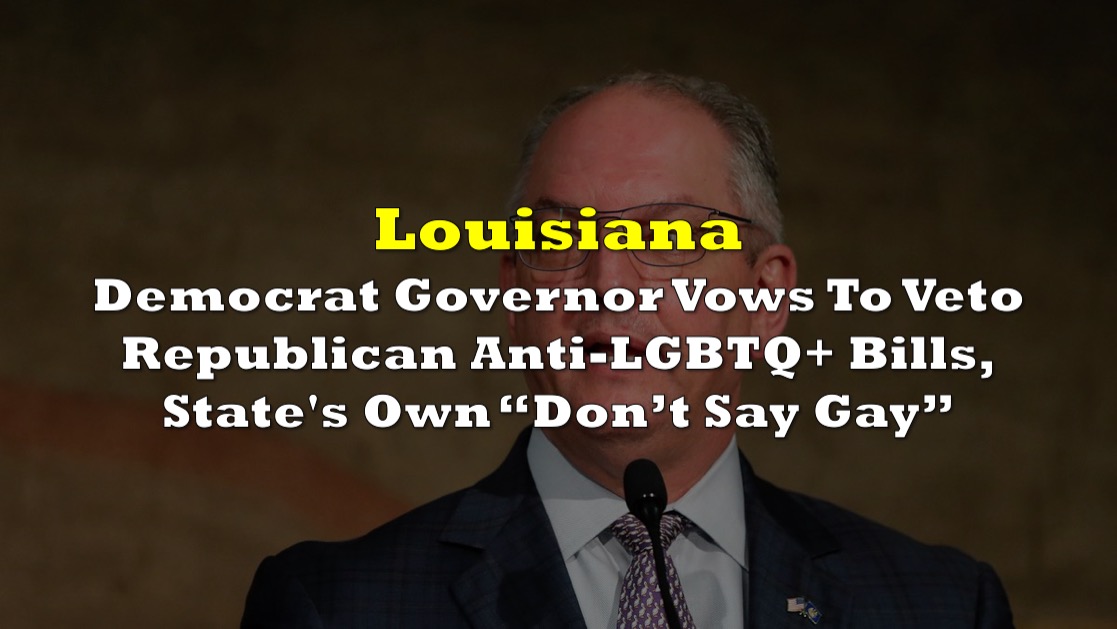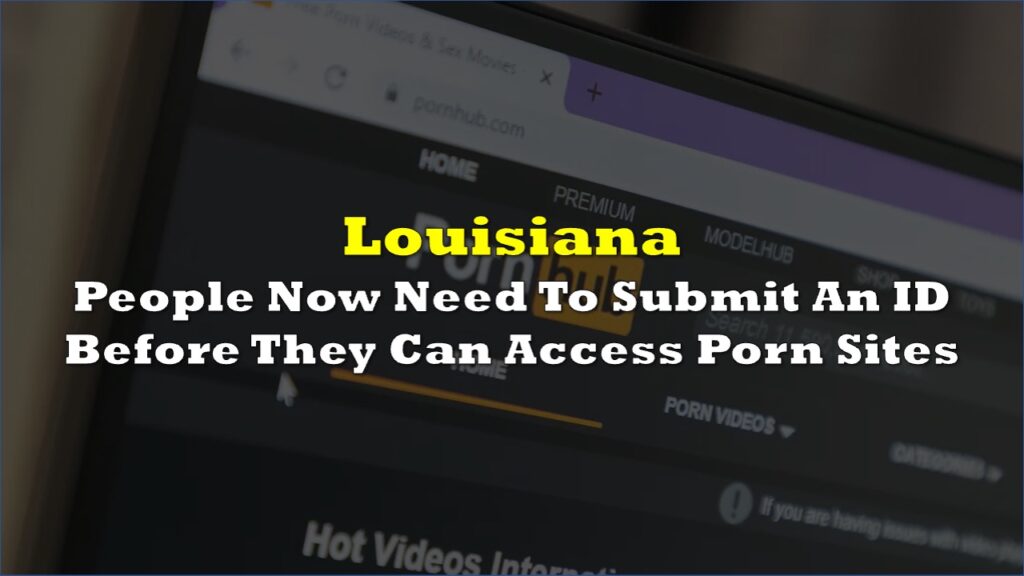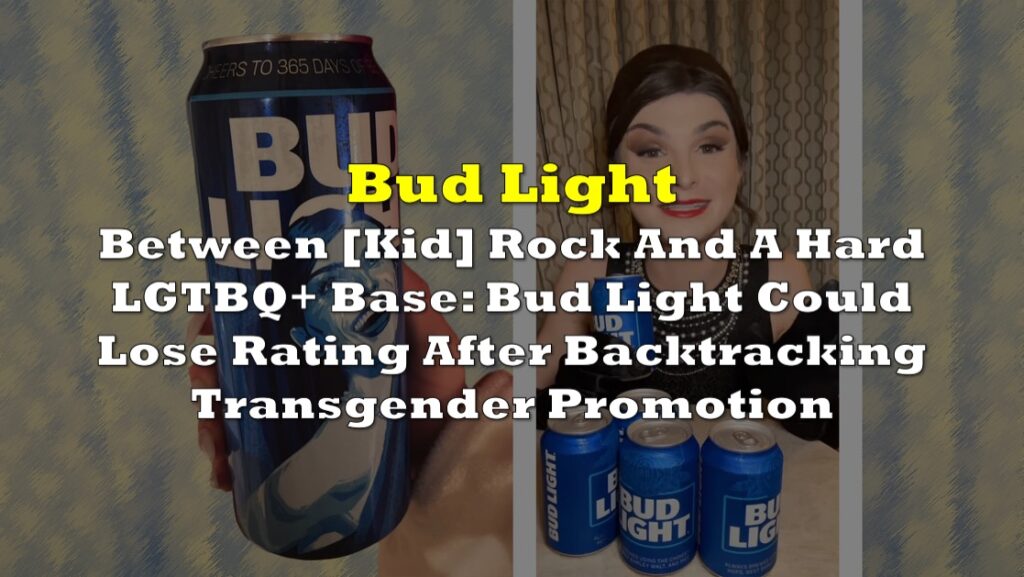In a bold move, Louisiana Governor John Bel Edwards, a Democrat, announced his intention to veto a set of bills recently passed by the GOP-dominated legislature that specifically target the LGBTQ+ community. These bills include a ban on gender-affirming care for transgender minors and a state version of the infamous “Don’t Say Gay” bill.
Throughout the legislative session, which concluded on Thursday, Edwards has consistently voiced his opposition to the series of LGBTQ+ bills. If he follows through with the veto, lawmakers may convene for a special session to override it. However, this would require a two-thirds majority support from both the House and Senate, which are currently controlled by Republicans. Notably, Louisiana has only seen two veto sessions since 1974.
While the primary focus of the lawmakers over the past two months has been the state budget, the debate surrounding these contentious anti-LGBTQ+ bills has garnered significant attention both statewide and nationally.
The legislative discussions have been characterized by misinformation, religious arguments, impassioned testimonies from the LGBTQ+ community, and even the revival of a bill that was presumed dead. This cultural divide in Louisiana mirrors the patterns observed in Republican-led statehouses across the country, where bills targeting the transgender community have taken center stage on conservative agendas.
Startlingly, over 525 anti-LGBTQ+ bills have been introduced in 41 states just this year, according to data from the Human Rights Campaign, a prominent gay rights organization. In response to this alarming situation, the HRC declared a state of emergency for LGBTQ+ individuals in the United States and released a guidebook containing resources to help people relocate to states with stronger LGBTQ+ protections.
The LGBTQ+ rights have been put front and center after Bud Light received backlash from conservative beer drinkers recently when the brand engaged transgender influencer Dylan Mulvaney in its March Madness campaign.
Anheuser-Busch, the makers of Bud Light, then put two of its executives on leave and issued a statement from its CEO Brendan Whitworth: “We never intended to be part of a discussion that divides people. We are in the business of bringing people together over beer.”
The HRC then informed the company that it has suspended their Corporate Equality Index score, which is a tool that ranks firms based on their policies for lesbian, gay, bisexual, transgender, and queer employees.
In the final days of the session in Louisiana, lawmakers passed several controversial pieces of legislation, including a “Don’t Say Gay” bill that broadly restricts teachers from discussing gender identity and sexual orientation in public school classrooms. Additionally, they approved a ban on gender-affirming medical care for transgender youths and a measure mandating public school teachers to use pronouns and names that align with a student’s assigned sex at birth.
The so-called “Don’t Say Gay” bill has also been a contentious proposition in another state: Florida. The bill has sparked the ongoing battle between Florida Governor and Republican presidential candidate Ron DeSantis and the entertainment conglomerate The Walt Disney Co.
Last year, DeSantis challenged Disney’s long-held self-governing rights when the company objected to his so-called “don’t say gay” laws, which restrict the teaching of gender and LGBTQ+ issues in Florida schools.
While these proposed bills in Louisiana have yet to reach Governor Edwards’ desk, he expressed his expectation of vetoing them during a news conference. He criticized the ban on gender-affirming care for transgender youths, which encompasses important medical interventions like puberty-blockers, hormone treatments, and surgery, labeling it as wrong and emphasizing the need for unity instead of division. Edwards highlighted the vulnerability and fragility of these children, who are more prone to suicidal ideations and attempts.
Republican lawmakers argue that these bills are intended to protect children, but opponents contend that they will do the opposite, increasing the risk of stress, depression, and suicidal thoughts among an already vulnerable group.
The decision to convene a veto session lies in the hands of the lawmakers, requiring a simple majority to move forward. However, whether the GOP possesses the necessary two-thirds majority to override a veto remains uncertain, as acknowledged by Senate President Page Cortez, a Republican, who stated, “I don’t know at this point in time.”
Earlier this year, Louisiana recently passed a law, known as Act 440, that requires age verification to access any website that contains at least 33.3% pornographic or sexually explicit material–meaning viewers of such content will now need to submit a government-issued ID to go to porn sites like Pornhub and RedTube.
The legislation was introduced by Republican state representative Laurie Schlegel in February and was signed into law by Edwards in June.
Information for this story was found via AP News and the sources mentioned. The author has no securities or affiliations related to the organizations discussed. Not a recommendation to buy or sell. Always do additional research and consult a professional before purchasing a security. The author holds no licenses.








